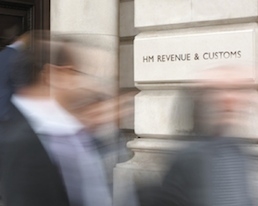In the 2020/21 tax year the number of estates paying inheritance tax rose 17% year-on-year with pandemic deaths a factor in the growth, according to data released today by HMRC.
There were 27,000 taxpaying IHT estates, an increase of 4,000 from the 2019/20 tax year.
With nearly 230,000 UK deaths directly attributable to the Covid-19 pandemic it appears the rise in deaths overall resulted in more estates unexpectedly hit by IHT.
HMRC said that the rise in IHT tax liabilities could be at least partially attributed to the rise in UK deaths due to the Coronavirus pandemic.
In its analysis of the figures HMRC said: "The rise (in IHT paying estates) in the 2020 to 2021 tax year is likely due to both the knock-on effects of the Covid-19 pandemic on the volume of wealth transfers and IHT-liable deaths in that year and continued rises in asset values.
The number of deaths in the UK overall rose from 612,000 to 722,000 (18%) during the year. Total IHT tax liabilities for the year were £5.76bn, a 16% increase year-on-year.
Financial Planners said that the rise in IHT suggested it was no longer a wealth tax.
Shona Lowe, Financial Planning expert at Abrdn, said: “Thanks to years of soaring property prices across the country, alongside the ‘nil-rate’ band freeze, which has been in place since 2009 and will remain until at least 2028, IHT is no longer the ‘wealth tax’ it once was.”
The largest exemption set against assets continued to be for transfers between spouses and civil partners. According to the data from HMRC, in the 2020/21 tax year £15.7bn was transferred to surviving spouses and civil partners on death, a rise of £2.7bn (21%) year-on-year. This exemption was used by 24,000 estates above the nil rate band.
Rachael Griffin, tax and Financial Planning expert at Quilter, said IHT was ripe for reform. Some commentators have suggested the Conservatives may use scrapping IHT as an election pledge.
She said: "There has been much talk of abolishing IHT altogether over the years. Proponents of abolishing IHT laud the move as a move away from taxing people twice on their earnings. The reality is that there is a chance that abolishing IHT could help turbocharge wealth creation and therefore the economy but abolition could also usher in a new even more hated tax – a wealth tax.
"Considering how lucrative the tax is, getting rid of it altogether could punch a hole in the country's budget compounding an already bleak economic outlook and the government will need to fill that hole.
"There are some serious flaws in IHT however that need to be ironed out to ensure that the middle classes don’t end up paying a higher AETR (Average Effective Tax Rate) than the mega wealthy."
"Simplifying aspects of inheritance tax is crucial for effective reform. The residence nil rate band (RNRB) is complex and poorly understood, causing confusion for those navigating inheritance tax. A far simpler approach would be to scrap it and increase the nil-rate band, which could be beneficial for a larger number of estates."
Research from Abrdn showed that a lack of communication and action is leading to 'blended families' being caught in the IHT net.
Almost half (47%) of blended families have not changed or updated their wills after getting divorced, getting re-married, having children or becoming a step-parent.
Many parents in blended families do not agree on how their wealth will be passed on (40%), compared with 30% of those from ‘conventional’ families. One in seven (14%) of those from blended families admitted they had not broached the subject at all with their partners.
• Abrdn surveyed 2,000 savers age 40 or above in May.

